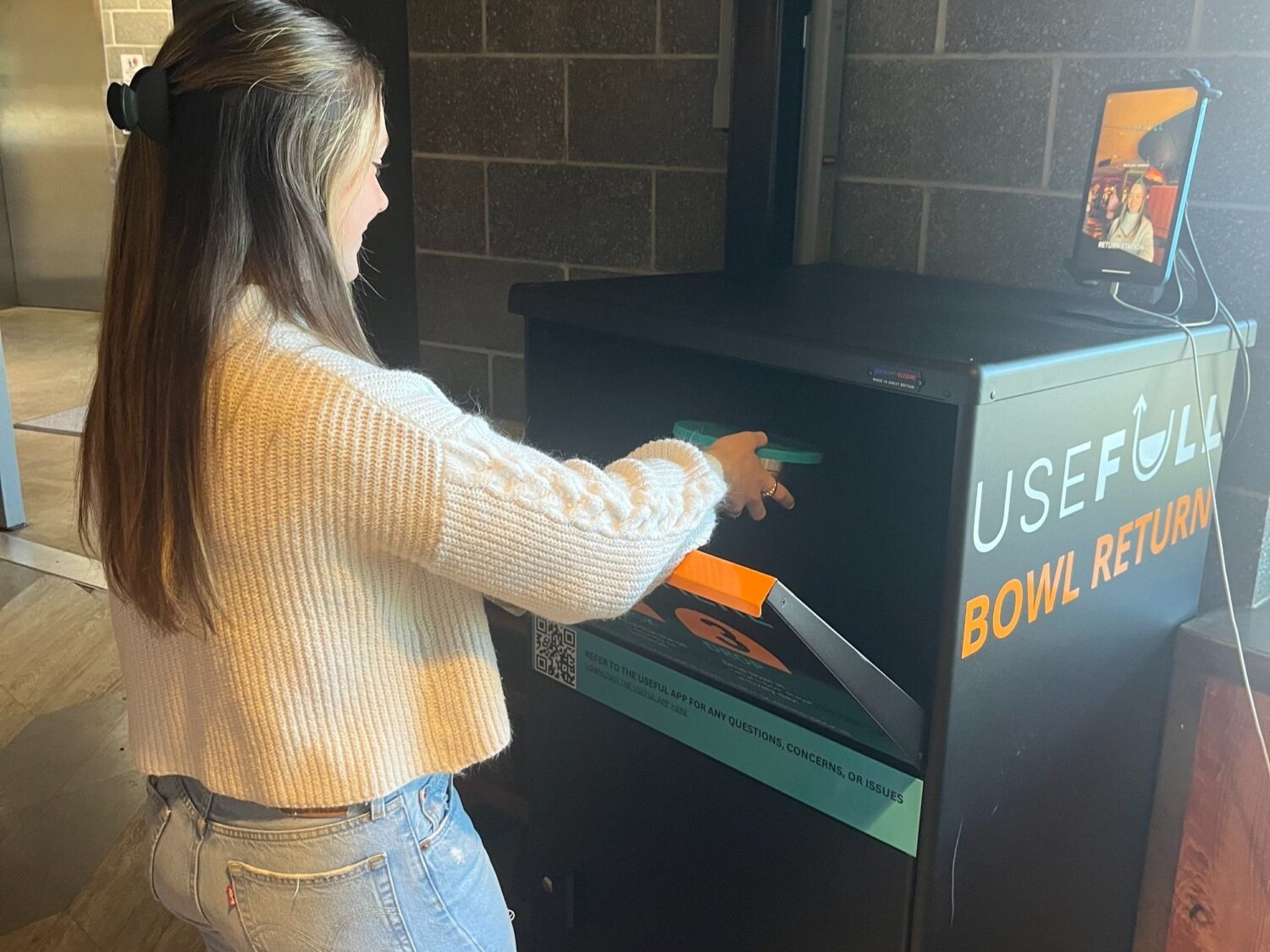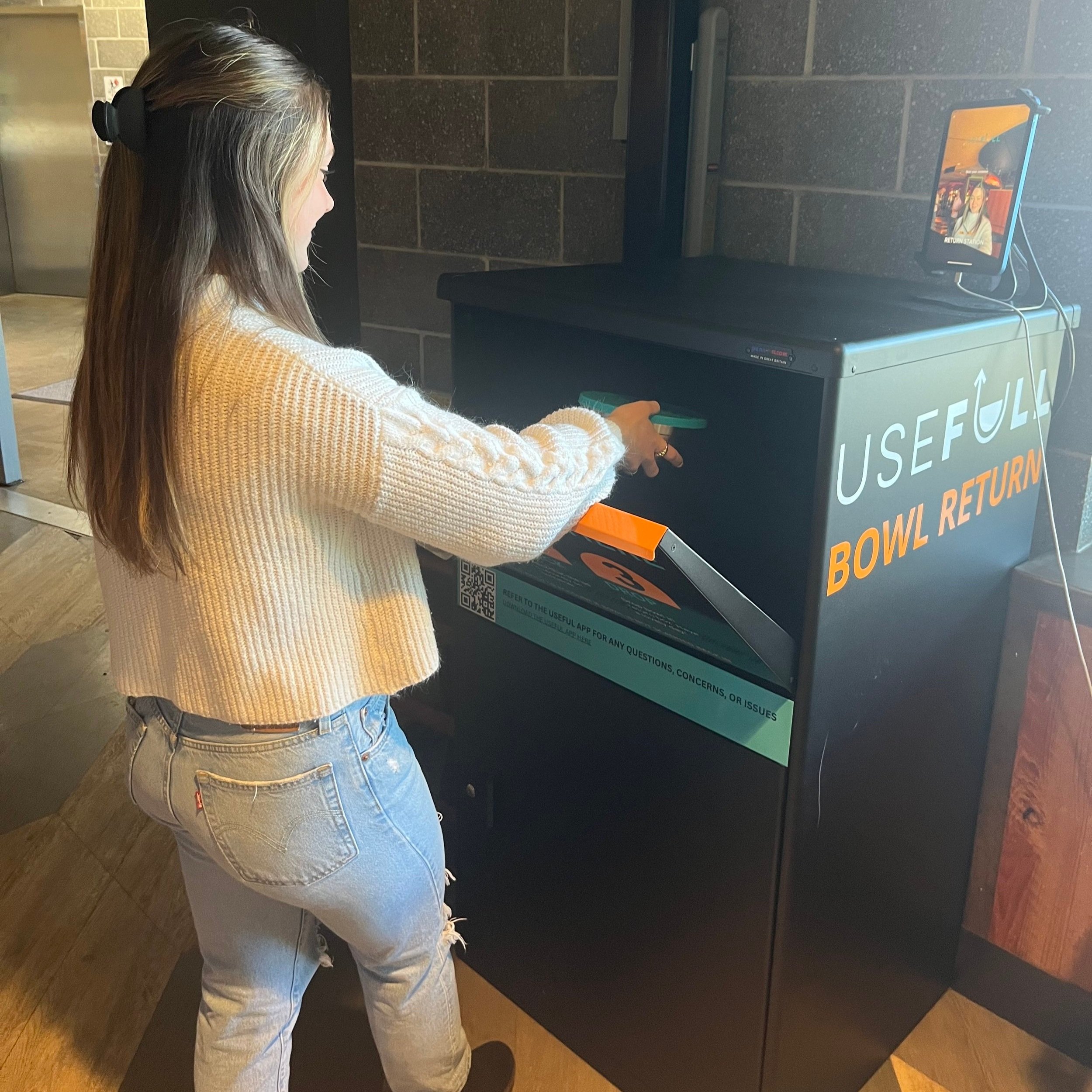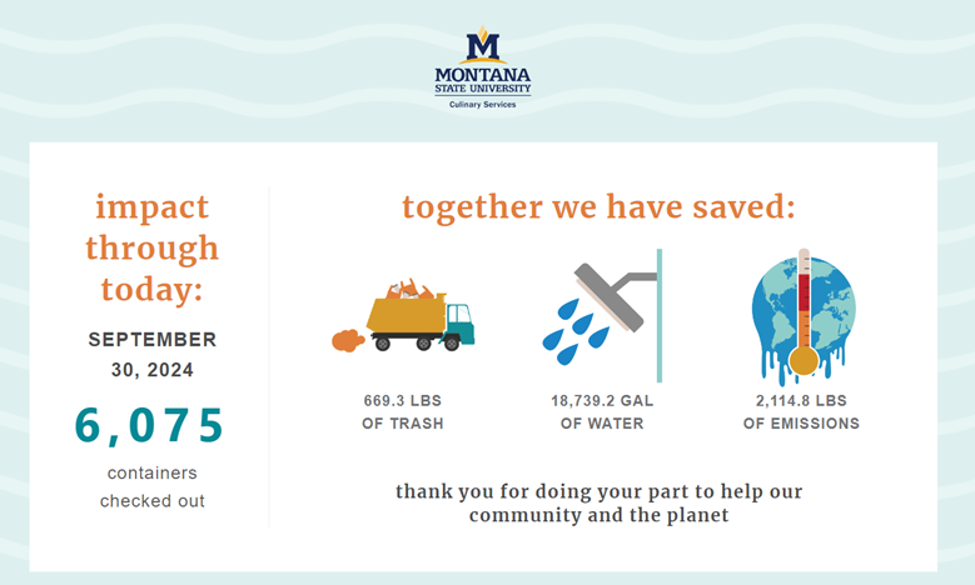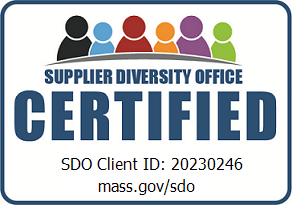To start the 2024 school year, Montana State University (MSU) in Bozeman embarked on a reusable program for the first time, offering their 4,500 on-campus students as well as commuter students the opportunity to take meals on the go in durable stainless steel containers supported by USEFULL’s innovative technology. This decision was carefully considered at MSU and the positive impact is apparent already.
We sat down with MSU’s Stacie Metzger, Associate Director of Dining Halls, Custodial, and Bakery and Kara Landolfi, Supply Chain Manager for Culinary Services, to hear more about the university’s journey to reusables and reflect on how it’s been going now that the first month has passed.
“The USEFULL program has taken off at Montana State. We’re really impressed with the numbers that we’re seeing. It’s just been very smooth and very positive.”
Choosing a Reusable Program
On-the-go culture is here to stay, and that’s certainly been the case at MSU. Peak COVID times supercharged the need to find a solution for students to be able to eat in places away from the traditional dining hall, and there’s been no turning back once the convenience of it became routine.
However, the MSU dining staff and student community soon grew tired of seeing the single-use takeout containers, oftentimes in excess and filled with uneaten food, stack up around campus. They had to find a solution that was better for the environment, budget-friendly, and more rewarding for employees and students alike.
Introducing sustainability-driven programs is nothing new for the university, which has a strong farm-to-campus program as well as other initiatives including composting and recycling. As a self-operated food service without a contract management company, the school’s Auxiliary Services department prides themselves on their test-and-learn capabilities that put the unique needs of their campus community first. As Stacie says, “It’s a fluid family – all departments know each other. We have the flexibility of being able to help our partners on campus, introduce programs that will benefit the school as a whole, and refine them to ensure they’re meeting our needs.”
After 18 months of exploration during which the university evaluated five different reusable programs, the university came to a unanimous decision to move ahead with USEFULL based on six key considerations:
1. Student Drive
Stacie noted, “There was a demand from our student body of wanting to maintain the convenience of a to-go option, so introducing USEFULL was a beautiful bridge to their request and also to help control our costs and the amount of food and packaging waste that was happening with the disposable to-go containers. We’re also staying in line with student expectations on sustainability. These days, college students expect businesses to be sustainable and to make sure they are being responsible to the environment.”
2. Environmental Impact
MSU’s Office of Sustainability is constantly looking for ways to reduce and monitor food and packaging waste, water usage, and emissions, and they often turn to Auxiliary Services to help drive change. “We get a lot of push from the university as a whole, especially relative to our sustainability goals. Our student body government is also always pushing us to try and work towards reducing single-use packaging waste”, remarked Kara. Stacie added, “One of the things that was attractive about USEFULL is that it is completely plastic-free. That was a big benefit and probably the deciding factor for both students and the university because USEFULL is the only program we found that uses thermal, stainless steel containers.”
3. Cost Savings
Paying for and managing disposable packaging inventory is no small feat when your campus dining service supplies 11,000 meals a day. While some may initially guess that USEFULL’s program is cost-prohibitive given the high-quality containers, in fact the program is anticipated to save MSU $70,000 annually. Not only does the program eliminate the need to purchase single-use packaging materials on an ongoing basis, but Kara also notes, “the USEFULL stainless steel containers themselves are more durable and so they’re going to be longer lasting for us. If they were plastic, we’d have to continue to reinvest and purchase more of them. What’s more, USEFULL’s leasing structure helps minimize the upfront investment.”
4. Technology
USEFULL’s technology unlocks real-time access to impact data critical to measuring progress against sustainability goals. There are also other less-obvious benefits that were equally considered during the decision-making process. Very important to MSU dining is the desire to promote social eating environments while balancing the need to support students’ busy, on-the-go lifestyle. USEFULL’s technology enables flexibility for the university to introduce and monitor limits to things like number of to-go meals permitted each day per student and seamlessly approach residential students differently than commuter students. It also generates encouraging impact metrics and user incentives that influence behavior to build a strong habit of container returns. Kara also noted, “it’s just super user-friendly to the audience that we’re providing this service to.”
5. Ease of Implementation
USEFULL’s all-in-one solution makes it easy to both launch and maintain on an ongoing basis. Kara shared that “from the vast majority of all colleges and universities that I’ve met with, staffing and management of additional projects is tricky because you’re needing to develop all of these SOPs for so many different things, and update your onboarding, and hire staff, etc. So when you’re bringing in a new program like a reusable option, if you’re having to develop that whole program from the ground up, it’s just quite a bit of work to continue to manage. By having USEFULL do all that background work for you through the app, it just makes it so easy to just bring in the product, find some stations to have them set up, and then it just flows.”
6. Food Safety
An added bonus of USEFULL’s stainless steel containers is that they keep cold food cold and hot food hot for 5+ hours. The material’s thermal qualities not only eliminate the need to microwave when students arrive at their eating destination, which adds dangers when using plastic containers, but also gives the university’s on-staff Sanitarian a bit more peace-of-mind. Kara noted, “For us, another positive checkpoint was food safety. The fact that there is thermal insulation maintaining food temperature for a longer, extended period than a piece of cardboard or plastic was just icing on the cake. It made our staff more at ease that the food leaving our dining halls would be less likely to make students sick if not eaten right away.”
Thriving at 30 Days In
Cautiously optimistic at first, Kara noted any worries she initially had were for naught: “Honestly, I was wondering about the implementation of it and how well it might be received by our staff, but it’s just been so much easier than I ever imagined.” While pre-launch jitters about the transition included everything from poor container returns to dishwashing challenges to long check-out lines, “we’re not seeing any of that” remarked Kara. “And students can just navigate it so quickly and easily. It’s awesome. We’re not having to dedicate any staff or management time, and students are very accustomed to the technology.”
Stacie added, “It’s a great program. Before starting, I didn’t think we were going to get as much participation as we did with the single-use containers, but I was dead wrong. It’s phenomenal. The students love it. I don’t think I’ve received one complaint about the program or the process.” She even leverages the technology to monitor container inventory volumes two or three times a week, with no intervention needed to date.
The results speak for themselves on a daily basis, as students both view personal impact data on the USEFULL app on their phones and collective campus impact data on digital screens posted in the dining halls. The momentum builds with this real-time view into the progress the MSU community makes to reduce waste, water, and emissions through the USEFULL program. “It’s very feel-good,” describes Stacie.
As a parting note, we asked Stacie what advice she would you give to other universities that are considering adopting a reusable program like USEFULL’s, and her response says it all:
“The convenience of having a partnership with USEFULL is that they manage the program, and we build the relationship to where we trust that they’re going to manage it well. And they’ve done exactly that. USEFULL staff members even showed up four days before we opened for the semester to orchestrate the launch – from manning tables to get students to sign-up to training our folks so that we don’t have to come up with the training ourselves. All we had to do was get everybody there. The convenience of it is just phenomenal. So I would encourage other universities, if you want to save yourself some time to have a successful program and have somebody else worry about it then sign up. It’s been nothing but great.”
Interested in bringing USEFULL to your college campus? Get in touch.








